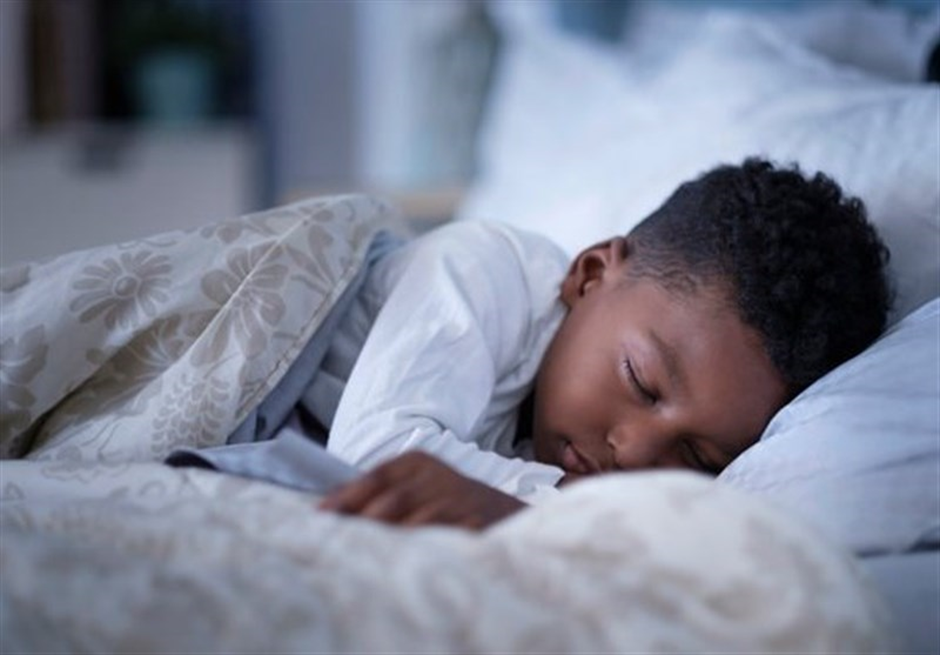Last Updated on August 1, 2024 by Mandy Gurney
Human sleep undergoes continuous change from the pre-born baby through to adulthood, with the most rapid changes occurring in the first 6 months of life.
As your baby and child grow, their sleep patterns evolve rapidly, especially during their first year. Just when you think you’ve got their sleep figured out, new developmental milestones can come into play, sometimes causing what’s commonly referred to as s ‘sleep regression’.
In this blog, we’ll explore how these developmental stages—from early motor skills to language development and more—can have an impact on your baby and child’s sleep. Understanding these changes can help you better navigate and adapt to your child’s evolving sleep needs, ensuring both you and your little one get the rest you need.

Your Babies Sleep: Age 6 to 12 months
-
Nighttime Sleep:
By now, your baby will have the majority of their sleep at night, although it is still common for them to wake occasionally. Non-REM sleep dominates early in the night, promoting deep restorative sleep. By the middle of the night, REM sleep becomes more prominent, which is important for cognitive development and memory consolidation. REM sleep accounts for about 30% of the total sleep time at this age.
The average amount of nighttime sleep for most babies at this age is 10 to 11 hours with or without waking for feeds. This extended nighttime sleep is supported by the gradual reduction of daytime sleep and the development of longer periods of wakefulness during the day.
-
Sleep Cycles:
Your baby’s sleep cycle at this stage is roughly 90 minutes long at night. This cycle includes both deep non-REM sleep, which helps with physical restoration, and lighter REM sleep, which supports brain development and dreaming. As they transition through these cycles, your baby may stir or wake briefly.
-
Naps:
Around 6 months of age, your baby will typically take three distinct naps throughout the day. These naps help them manage their increasing wakefulness during the day. By 9 months, your baby’s capacity to stay awake between naps improves significantly. As a result, they often drop their late afternoon nap, consolidating their daytime sleep into two main naps.
-
Separation Anxiety:
Around the age of 7 months, many babies begin to experience separation anxiety, which can lead to noticeable sleep disruptions. This developmental phase is marked by your baby’s growing awareness of their attachment to you and an increased sensitivity to your absence.
During this time, your baby may become distressed when you leave the room or when it’s time for bed. They might cry, reach out, or resist being put down in their crib, reflecting their newfound understanding that you might not be immediately available. This separation anxiety is a sign of a secure attachment, indicating that your baby has formed a strong bond with you and is developing emotional depth.
-
Physical Development:
As your baby develops new motor skills such as sitting, crawling, and cruising, you may notice disruptions in their sleep patterns. This phase of physical growth is marked by increased exploration and practice of these newly acquired skills, which can extend into their sleep environment.
When your baby is learning to sit up or crawl, they might practice these movements even while in their cot, leading to frequent awakenings or restlessness during the night.
-
Language Development:
As your baby begins to speak their first words, you might notice an increase in sleep disturbances. This period of language development is marked by a busy, active mind that’s processing and trying out new skills.
Your baby’s growing ability to recognise and use words can lead to heightened mental activity, even during sleep. They might wake up more frequently as their brain processes new vocabulary, phrases, and concepts learned throughout the day. Additionally, they may experiment with sounds or practice speaking just as you’re trying to calm them ready for sleep.
-
Teething:
Teething can be a challenging period for both you and your baby, often leading to discomfort that can disrupt their sleep. As new teeth push through the gums, your baby may experience soreness and overall discomfort, which can result in more frequent night awakenings.
During this potentially long and difficult time, it’s best to respond to your baby’s needs. You can help soothe their discomfort by offering teething toys that are chilled or gently massaging their gums with a clean finger. Additionally, using a mild pain reliever, as recommended by your paediatrician, can provide relief. Maintaining a consistent bedtime routine and offering extra comfort during night wakings can also help your baby feel more secure and ease their teething troubles.

Your Toddler’s Sleep: Age 1 to 2 Years
Between 12 and 15 months, most toddlers transition to a single daytime nap, typically taken after lunch. To help prevent overtiredness and make bedtime smoother, consider moving bedtime earlier.
At this stage, your toddler might develop minor fears, such as of animals or loud noises, which can disrupt bedtime. They may also form a strong attachment to one parent, experience tantrums when frustrated, and show increased separation anxiety, especially around 18 months.
As your toddler’s understanding of simple commands and language grows, they may begin walking and climbing, fostering newfound independence that can lead to bedtime challenges.
They will enjoy listening to stories and might start testing boundaries for more.

Your Child’s Sleep: Ages 2 to 5 Years
During this stage, your child may start experiencing nightmares and developing fears, such as a fear of the dark. They might ask for a nightlight or request that the door be left open at bedtime. Their anxiety about being alone in a room can make settling down more challenging.
The transition from a cot to a bed can introduce a sense of freedom for your child, which may lead to resistance at bedtime or an increase in night wakings.
By age 3, your child’s sleep will typically consolidate into a single nighttime sleep as daytime naps reduce and often stop by this age.
Many children also begin to stay dry at night and may move out of nappies. This new awareness of their need to use the toilet can occasionally disrupt their sleep.
Increased independence at this age might result in resistance to bedtime routines, such as getting dressed, brushing teeth, or going to bed.
Additionally, starting nursery or school introduces significant changes that can unsettle your child and affect their sleep.
From age 3, children can usually wait for short periods at bedtime and start to understand the concept of rewards, which can be used to encourage positive behaviour changes.
By age 5, children are typically able to articulate their fears, worries, and frustrations more effectively.
0 Comments





